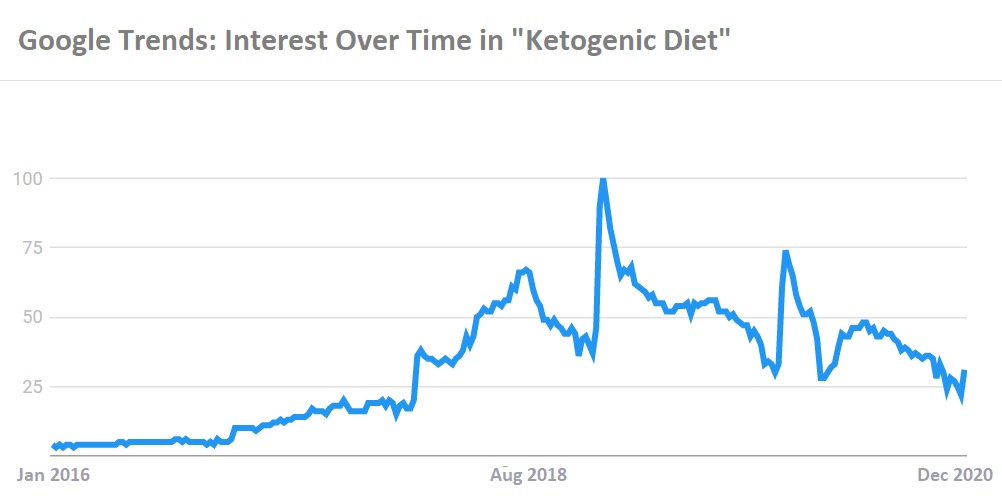
Does This New Study Mean Keto Is Losing Its Luster?
When it comes to dietary patterns, one size doesn’t fit all. But when it comes to magical diet thinking, the masses wish for something different. The wish is for a “best” diet – something that will let me lose weight without feeling hungry. For several years now, pop culture assigned that magic to keto diets. With a low-carb, high fat diet, ketogenic diets are supposed to help a person burn fat, reduce blood sugar and insulin levels, and ultimately help a person lose weight without excessive hunger. However, a new study published yesterday in Nature Medicine calls some of that keto magic into question.
Kevin Hall and colleagues from the NIH found that a ketogenic diet did not work wonders for suppressing appetites. In fact, it took more calories to satisfy hunger on a keto diet in this four-week study.
Not a Weight Loss Study
Let’s be clear. This was not a weight loss study. In fact, subjects were instructed to eat whatever they wanted and not to do anything aimed at gaining or losing weight. In a tightly controlled setting, subjects could only eat the food supplied by the researchers for four weeks. It was a randomized, crossover design. Half the subjects received food for a high-fat ketogenic diet for the first two weeks. The other half received a plant-based low fat diet. After two weeks, they switched diets.
Nonetheless, on each diet, people lost weight – about the same amount on each diet. With the keto diet, people lost more lean body mass. On the low fat diet, people lost more fat mass. Hunger and enjoyment of food was similar in both groups, but on the keto diet, people had an appetite to eat more calories.
In no way does this study prove that one dietary pattern will be better than the other for controlling a person’s weight over the long term. That simply was not the point of this study.
Blood Sugar and Insulin
One thing the study did show was that the keto diet is better for reducing blood sugar and insulin levels. There’s no ambiguity about that. However, the promise of better appetite control resulting from this effect did not turn out to be true. In fact, people had appetites for fewer calories when they were on the low-fat diet.
 Magical Luster Fades
Magical Luster Fades
Until recently, ketogenic diets were the hottest thing going for weight loss. But lately, the interest has been fading. Weight loss has been getting a bad name. People are putting health first. On top of that, the faddish interest in keto seems to have run its course.
That’s not to say that ketogenic diets no longer inspire a fan base. Gary Taubes is one of those fanboys, selling a new book called The Case for Keto. And of course, he’s out there on Twitter picking apart the fine points of Hall’s study.
In the end, the truth remains that there are many ways to eat a healthful diet. One size will never fit all. With either low-fat or low-carb diets, results will vary.
Click here for the study and here for further perspective from the ever insightful Tamar Haspel.
Three Salmon Steaks, painting by Francisco Goya / WikiArt
Subscribe by email to follow the accumulating evidence and observations that shape our view of health, obesity, and policy.
January 22, 2021

January 22, 2021 at 11:42 am, Mary-Jo said:
I’ve always been open to help people find the diet and foods that they enjoy while promoting health goals. For diabetics, my experience has, indeed, been advising a higher protein intake helped to avert blood sugar and insulin spikes, but these were on mixed diets, not ketogenic. My perspective on diets changed after leaving the USA, living in several countries where dietary habits and foods were so different to America, finding that ‘healthy’ wasn’t just one diet. And, traveling and staying in even more countries some of where food was scarce, so there wasn’t the ‘luxury’ of ‘choosing’ a certain diet, one had to eat what was there.